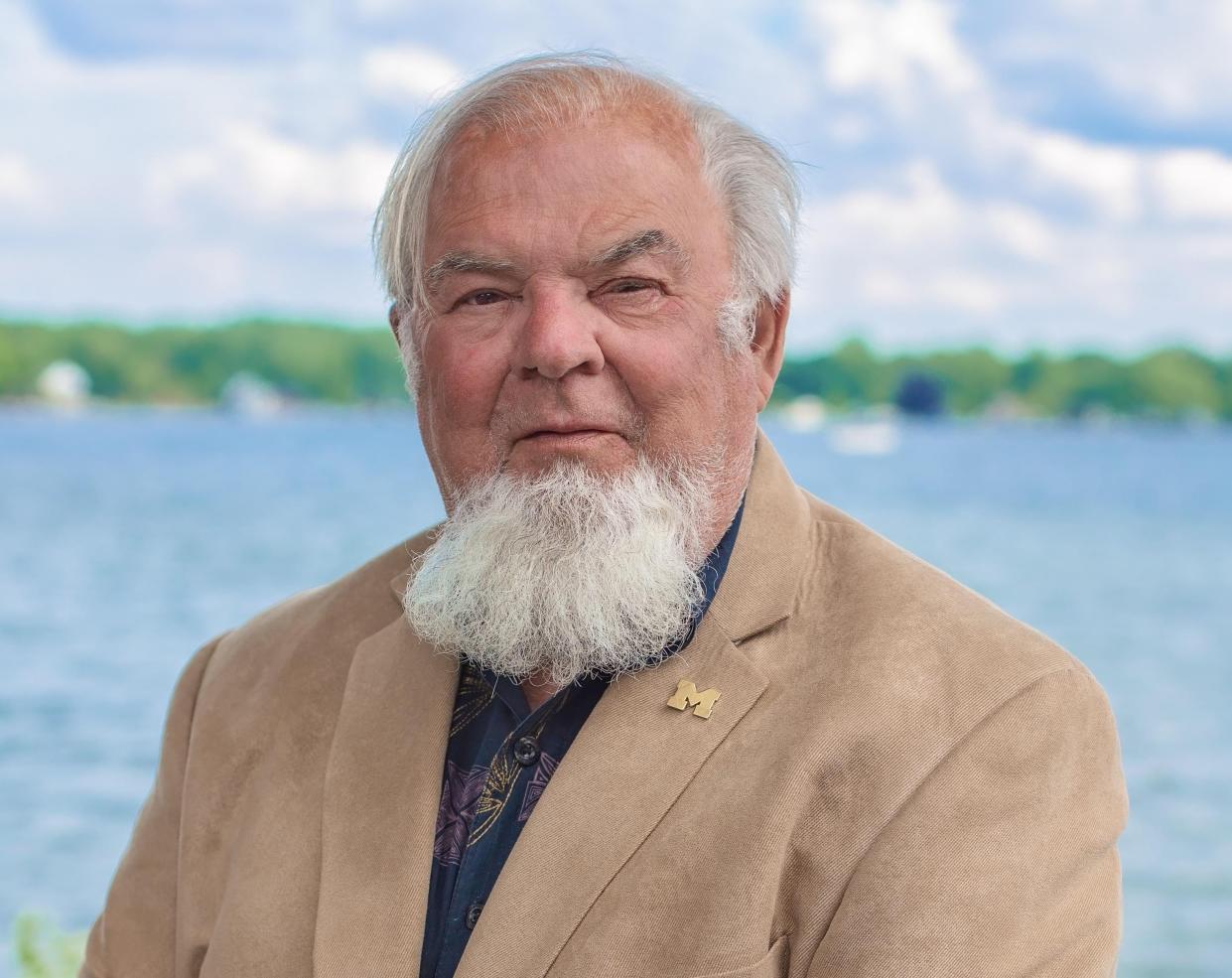James W. Pfister: Justices Samuel Chase, Clarence Thomas and judicial independence

- Oops!Something went wrong.Please try again later.
- Oops!Something went wrong.Please try again later.
The chairman of the Senate Judiciary Committee, Sen. Richard Durbin, invited Chief Justice John Roberts to be a witness before the committee to discuss “…ways to restore confidence in the Court’s ethical standards,” no doubt with Justice Clarence Thomas in mind. The Washington Post’s Jennifer Rubin has written: “Voters have a right to expect Senate investigations into questionable actions at the Supreme Court and elsewhere.” (Rubin, “Senate Democrats need to play hardball,” The Washington Post, April 20, 2023). But the chief justice has declined the senator’s invitation.
The Constitution gives federal judges independence in Article III. They have their positions during “good behavior” and their salaries “shall not be diminished during their Continuance in Office.” But Congress also under Article III has tremendous power over the judiciary. The phrases “good behavior” and “during their continuance in office” suggest that judges may not be in their positions for life. This issue was engaged in the impeachment trial of Justice Samuel Chase in 1805. This precedent is relevant to the current problems of Justice Thomas.
My thesis is that the Chase precedent strengthened the independence of the judiciary in our legal tradition beyond the textual language of Article III and should be a bulwark against the political temptation to interfere with the internal processes of the Supreme Court.
Chase, known as “Old Bacon Face” because of his ruddy complexion, one of the signers of the Declaration of Independence, was a man of “violent opinions, overbearing manners, and fierce temper,” always at the center of political and legal controversy. (William Rehnquist, “The Supreme Court,” 2001). He was a Federalist, appointed by President George Washington. When the justices of the Supreme Court rode circuit and conducted trials, Chase made partisan charges to grand juries and was extreme in carrying out the Alien and Sedition Acts. He publicly criticized the Republicans (not the current Republican Party), the party of President Thomas Jefferson, for repealing the Judiciary Act of 1801.
Jefferson wrote a letter to Joseph Nicholson, one of the leaders of the House of Representatives, where impeachment proceedings begin, suggesting that Chase should be punished. Nicholson took the hint and impeachment began with eight counts against Chase on March 12, 1804. William Branch Giles, a spokesman in Congress for Jefferson, summed up the threat to the judiciary: that impeachment was a method by Congress to remove judges who hold “dangerous opinions.” “We want your offices for the purpose of giving them to men who will fill them better.” (Warren Burger, “It Is So Ordered,” 1995).
There were 34 Senators for the trial on the impeachment. There were 25 Republicans, Jefferson’s party; only 23, or two-thirds, were needed for conviction and removal. The most Jefferson could get was 19 votes on the count regarding the grand juries. The senators, many of whom were lawyers, stood up for the independence of the judiciary in defiance of the president, just as President Franklin Roosevelt, with majorities in Congress, was rebuffed years later in a political attempt to pack the court.
Now, Thomas is being threatened, some calling for resignation, even impeachment. He had accepted rides on a wealthy real estate developer’s yacht and plane and stays at vacation resorts. There was also a real estate transaction of about $133,000, which appeared favorable to Thomas. These activities went unreported. The developer had no cases before the court so there was no conflict of interest. Thomas was apparently advised that “personal hospitality from close friends, who did not have business before the Court, was not reportable.” (Editorial, The Wall Street Journal, April 8-9, 2023).
Durbin may have simply wanted to question the chief justice on what the court is doing regarding an ethics code. This would have been consistent with judicial independence, I believe, although a rare occurrence. But a Congress-imposed code or investigation would cross the line. We are dealing with law, not politics. Our tradition requires an independent rule of law, with no political interference. Justice Amy Coney Barrett: “…this court is not comprised of … partisan hacks.” The justices have variance in legal philosophy, but they are not political in their work. They should make their own ethical code unpressured by Congress.
James W. Pfister, J.D. University of Toledo, Ph.D. University of Michigan (political science), retired after 46 years in the Political Science Department at Eastern Michigan University. He lives at Devils Lake and can be reached at jpfister@emich.edu.
This article originally appeared on The Daily Telegram: James Pfister: Justices Chase, Thomas and judicial independence

